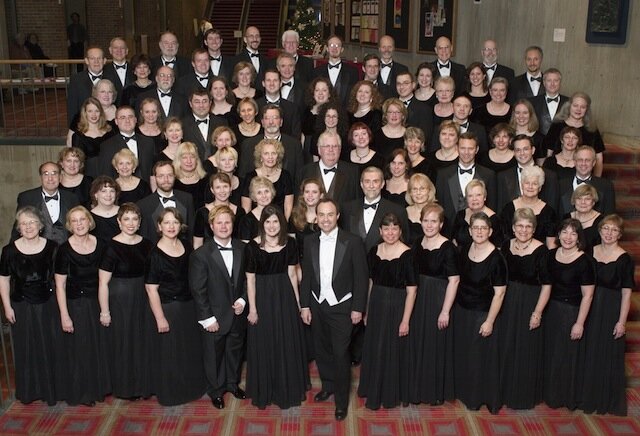The Vespro della beata vergine Monteverdi wrote in 1610 is a sunny work. It’s full of praise for God and for Mary, including several joyful psalms, the Magnificat, exquisite poetry from the Song of Songs and an all-encompassing prayer.
Monteverdi set these words to glorious music, and his Vespers was performed for a large audience Saturday night by Pacific MusicWorks in the appropriate environs and acoustics of St. James Cathedral.
This group, headed by lutenist/conductor/Baroque opera director Stephen Stubbs, has connections all over the world, and such is Stubb’s reputation that he can bring in stellar performers from almost anywhere. Among them Saturday night were the great cornetto player Bruce Dickey who lives in Italy but has a Canadian tour coming up shortly so could come here first, and tenor Charles Daniels who came from England just for this. Both have performed the Vespers with Stubbs many times in Europe, and Stubbs considers Daniels the best Monteverdi tenor performing today.
In Stubb’s view, the Vespers were written for a small group of top quality professional singers and instrumentalists such as Monteverdi would have had at his disposal at San Marco in Venice, and which Stubbs assembled for his performance: a total of nine solo singers and fourteen instrumentalists including himself.
Right from the start, the performance’s high caliber became obvious, with Daniels’ clarion tenor ringing out, the high cornettos sounding like velvet and the pure sound of the two sopranos hanging in the air. With the chorus (all nine soloists singing together) and all the musicians, the rich sound of the whole filled the cathedral, and having a small group performing this big work made complete sense. Arranged around the altar, the strings were on one side, cornettos (the brilliant-toned trumpet forerunner) and sackbuts (early trombone) a quarter way around, small organ and continuo cello and bass were placed in between as well as baroque harp and a place for Stubbs with his great bass lute, the chitarrone.
Monteverdi mixed up the forces to create plenty of variety. Sometimes, as in the brisk and joyous Psalm 113, he used a double vocal quartet. Others as in the Nigra Sum from the Song of Songs, he used a single tenor. In this, Daniels’ agile expressive voice and almost conversational tempi were closely matched by organ and chitarrone. The Audi coelum had an echo from tenor Jason McStoots singing in the back of the cathedral, while the gorgeous Sancta Maria, ora pro nobis had the two sopranos, Jolle Greenleaf and Catherine Webster, singing a high slow line in unison, with the instrumental parts dancing around them joyfully.
Despite the uncomfortable seats and poor sight lines, St. James is the perfect place to sing this. Both atmosphere and acoustics are just right. Words were fairly audible, often a problem here, but the excellent translations were side by side with the Latin and easy to follow.
